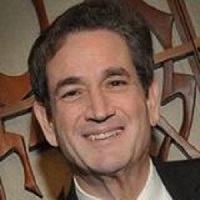By Rabbi Ben Kamin

ENCINITAS, California — The violent, churning, musical, rebellious, and ultimately frightening 1960s came to a shocking and bloody coda forty-five years ago on May 4, 1970.
Uniformed public officials laden with lethal power gunning down American citizens remains as real a horror—whatever the circumstances—now in a new and even more inexplicable century. My group and I, soon to enter college or be inducted into the military, were looking to the future with gilded hope.
Now, as aging boomers, we find that the circle never really left its starting point.
In what are still cloaked and mysterious details, Ohio National Guardsmen suddenly opened fire, in the open air and under sunny skies, upon a group of students at Kent State University. Though many think of the outdoor demonstration that the students were undertaking as being associated with the Vietnam War, it was more explicit. The youngsters were objecting to the invasion and bombing of Cambodia, a dangerous and ultimately futile escalation of the Indochina conflict—just announced by President Richard Nixon.
In an unaccountably insane flash of panic, contempt, and frustration, and under the bearing of then-Ohio governor James Rhodes, the guardsmen brandished their heavy weapons with live ammunition and pelted the crowd. Published sources indicate that the guardsmen fired 67 rounds in a matter of 13 seconds. Four college students were killed and nine others wounded, including one who would be paralyzed for life.
Most of the casualties were Jewish.
For those us graduating high school that very spring (as my class was at the southern end of Ohio), it was a stark wind-up of several years of compressed national angst, repeated urban violence, Vietnam and draft induction fears, and the consecutive assassinations of several major national figures. We had just endured the successive murders, within eighty weeks of each other in 1968, of Dr. Martin Luther King, Jr., and Sen. Robert F. Kennedy.
We were afraid, we were wary, we were in peril in those days, but we actually had personal feelings of connection and intimate affinities with many of the men and women who led us in politics, music, poetry, and social justice.
Today, we yearn for a presidential candidate, a steward of dreams, who is something more than a package of fluctuating slogans.
Then, we mourned the martyrs of the time, the iconic Kennedy brothers as well as Dr. King, but also a host of guitarists and lyricists and writers and countless, faceless soldiers, nurses, chaplains, and students and housewives who marched and even died in favor of a better society that cherished values more than valuables.
And the words of the more famous ones—from the Beatles to Bobby—are words that we remember, as clearly as we remember the words of our parents, or the first movie we saw with that certain date, or what transpired in the city high school which I attended from the inception of the federal government’s civil rights legislation in 1964 through to Woodstock and the Apollo moon landing of 1969 and, finally, to the senseless massacre, just four weeks before our graduation from high school—the Kent State slaughter.
God protect the souls of the innocents and help us see that we are losing our way again.
*
Rabbi Kamin is an author and freelance writer. You may comment to ben.kamin@sdjewishworld.com or post your comment on this website provided that the rules below are observed.
__________________________________________________________________
Care to comment? We require the following information on any letter for publication: 1) Your full name 2) Your city and state (or country) of residence. Letters lacking such information will be automatically deleted. San Diego Jewish World is intended as a forum for the entire Jewish community, whatever your political leanings. Letters may be posted below provided they are responsive to the article that prompted them, and civil in their tone. Ad hominem attacks against any religion, country, gender, race, sexual orientation, or physical disability will not be considered for publication. There is a limit of one letter per writer on any given day.
__________________________________________________________________